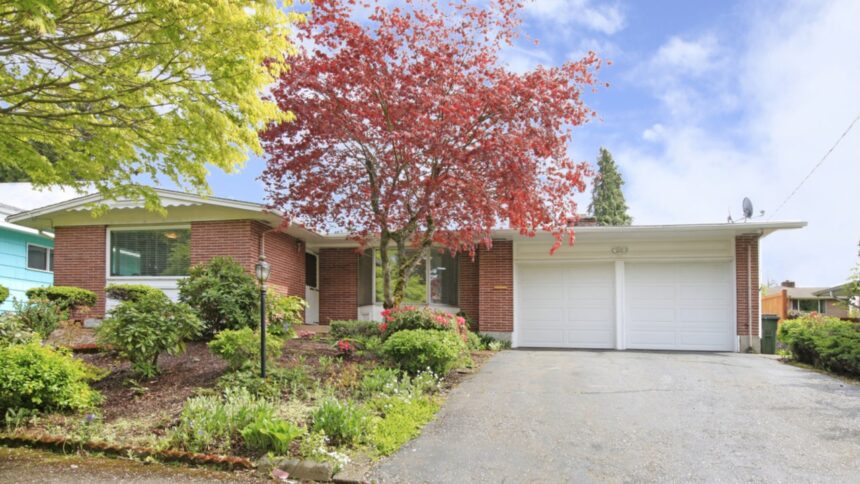Key takeaways
- A wraparound mortgage is a singular type of vendor financing by which the vendor retains their mortgage and extends a mortgage to the customer.
- The customer pays the vendor every month and the vendor makes use of that cash to pay their very own mortgage.
- For this to be a authorized possibility, the vendor should have an assumable mortgage.
- Whereas widespread with those that cannot qualify for conventional financing, wraparound mortgages carry dangers for each consumers and sellers.
A wraparound mortgage is another type of financing that may present a path to homeownership for many who don’t qualify for a standard mortgage. One of these monetary association can be interesting to sellers, significantly if a house has been sitting in the marketplace with none presents. However there are professionals and cons to the sort of mortgage which can be essential to know earlier than continuing.
What’s a wraparound mortgage?
A wraparound mortgage refers to a lesser-known mortgage possibility in residential actual property. A type of vendor financing, it’s a sort of assumable mortgage, by which the customer’s mortgage contains the earlier proprietor’s current mortgage. The customer makes month-to-month funds to the vendor, who, in flip, pays their very own mortgage lender — and sometimes pockets a little bit of a revenue on the distinction between the 2 funds.
It’s removed from a traditional mortgage, however will be a chance for homebuyers struggling to get a mortgage and sellers in misery.
Wraparound mortgage definition
An assumable mortgage is one the place the excellent mortgage and debt is transferred to a brand new proprietor. Most standard loans aren’t sometimes assumable, however many government-backed mortgages, resembling FHA, USDA and VA loans, are.
How do wraparound mortgages work?
With a wraparound mortgage, the vendor maintains their mortgage and acts as a lender to the customer, extending them cash to buy the house. The customer‘s mortgage “wraps round” the prevailing mortgage the vendor has on the property.
Every month, the customer makes funds to the vendor. The vendor then makes their very own common repayments to the lender that financed the unique mortgage. In lots of instances, wraparound loans have a better rate of interest than the prevailing mortgage. Consequently, the customer’s month-to-month funds to the vendor are sometimes bigger than the vendor’s, permitting the latter to cowl their funds and make a bit of revenue.
The customer and vendor each should comply with the wraparound mortgage, with the vendor first acquiring permission from their lender earlier than continuing.
After the phrases are in place and a promissory word is signed to seal the deal, the vendor may switch the house’s title to the customer immediately or as soon as the mortgage is repaid. As soon as the title is transferred, the customer is taken into account the property proprietor.
Wraparound mortgages are in a junior or second lien place. Which means if the customer can’t or doesn’t make funds, the unique mortgage lender — not the house vendor — can be repaid first from the proceeds of a foreclosures sale. In different phrases, the lender would profit earlier than the vendor is ready to recoup any losses.
Wraparound mortgage instance
Say a vendor has a remaining mortgage stability of $100,000 with a 30-year rate of interest of 5 p.c on a house value $200,000. The vendor finds an purchaser who’s unable to qualify for conventional financing.
To cowl wraparound mortgage danger, the vendor agrees to a wraparound mortgage of $150,000 — together with a $50,000 down fee — at an rate of interest of seven p.c. The vendor is ready to pocket $100,000, the $50,000 down fee plus the $50,000 in extra of his or her debt. As they proceed to make funds on the 5 p.c rate of interest, they’re additionally capable of make cash off the two p.c distinction between their unique fee and the brand new rate of interest.
The wraparound mortgage doesn’t must be higher than the unique mortgage. The customer and vendor can comply with a mortgage that covers solely the present principal.
Wraparound mortgage advantages
Wraparound mortgages will be advantageous for the customer and the vendor of a house.
Advantages for consumers
- Simpler to acquire. “A wraparound mortgage is a good suggestion when the customer doesn’t qualify for any mortgage merchandise with lenders,” says Benjamin Schandelson, a mortgage mortgage originator and head of promoting with MJS Monetary LLC in Boca Raton, Florida.
- Smaller mortgage. The customer may additionally be capable to borrow lower than in the event that they have been shopping for the property with a mortgage of their very own, or pay a decrease rate of interest.
- Less complicated, cheaper transaction. Patrons gained’t have to attend by a lender’s lengthy underwriting course of, and could also be spared many mortgage-related closing prices.
Advantages for sellers
- Revenue potential. Together with any appreciation within the dwelling value, sellers get to pocket the distinction between their remaining mortgage stability and the wraparound mortgage. In addition they revenue from the distinction of their mortgage’s rate of interest and the upper one the customer is paying.
- Enhanced money move. The proprietor will get common revenue every month within the type of the customer’s mortgage fee.
- Promoting technique. Providing a wraparound mortgage may improve curiosity within the dwelling, attracting consumers who usually won’t be capable to afford it.
Wraparound mortgage dangers
No mortgage is ideal. Patrons and sellers face some wraparound mortgage dangers.
Dangers for consumers
- Unreliable sellers. “The most important danger is the vendor defaulting on the unique mortgage, which might put the property the customer resides in into foreclosures,” says Schandelson. It’s important to belief that the vendor will preserve making funds on their mortgage. In the event that they don’t, the lender might seize the house, even when your individual fee document is spotless. You additionally must belief the mortgage was assumable within the first place; if the vendor didn’t get permission for the wraparound, the lender might additionally foreclose or name the mortgage in.
- Dearer phrases. The additional curiosity the vendor is charging you could exceed standard mortgage charges. They need compensation for his or her hassle/danger, particularly since you could not have the very best credit score.
Dangers for sellers
- Paperwork. Organising a wraparound mortgage means you’re now within the home-financing biz with all that it implies: sending out statements/invoices, maintaining observe of funds, ensuring you keep data and accounting for the revenue in your tax return. If you happen to don’t correctly file, the IRS won’t be completely satisfied.
- Unreliable consumers. You could imagine that the customer will make their required funds on time and in full. In any case, you’re nonetheless on the hook to your month-to-month fee, even when the customer stops paying. “This implies you both want to return out of pocket or miss funds, which might harm your credit score rating,” says Schandelson. “You may also have to take authorized motion in opposition to the customer for not paying, which will be expensive.”
Alternate options to a wraparound mortgage
Though they can assist consumers with poor credit score or in excessive interest-rate environments, wraparound mortgages aren’t the one possibility. Contemplate these alternate options:
- Authorities-backed loans. These mortgages provide low down fee necessities and can be found to debtors who don’t have nice credit score scores. FHA loans include the fewest restrictions. USDA loans and VA loans provide beneficiant phrases. Nonetheless, you’ll be able to solely get one in an eligible rural space (USDA) or if you’re or have been within the army (VA).
- HFA mortgage. Out there solely by state housing finance companies, HFA loans are geared towards first-time and low-to-moderate revenue homebuyers. You might be restricted within the dwelling’s buy value and site, because it must be inside that state.
- Typical 97 mortgage. Out there by the government-sponsored entity Fannie Mae, this can be a standard mortgage with a 3 p.c down fee requirement.
Sellers may additionally take into account alternate options, resembling:
- Renting. Utilizing the house as an funding property might nonetheless deliver important revenue with an analogous danger degree. You would give tenants long-term leases or arrange a rent-to-own settlement.
- Renovating. If you happen to’re promoting since you want more room or desire a nicer dwelling, take into account making an attempt to develop or renovate your home, as a substitute. Some strategic reworking could make your property extra invaluable down the street, too.
Is a wraparound mortgage best for you?
A wraparound mortgage is a inventive approach for a purchaser and vendor to make a transaction occur, however there are dangers on each side. Patrons might want to discover the appropriate vendor who’s prepared to work with them, resembling somebody who’s having a troublesome time unloading their dwelling or having hassle assembly their mortgage funds. Sellers will want to verify their lender permits this type of association, and carry out due diligence on the customer’s funds.
Earlier than shifting ahead with a wraparound mortgage, it’s sensible to seek the advice of with an actual property legal professional who can advise on the dangers and ensure agreements are correctly drawn as much as shield all events. For instance, consumers may need to add a clause that lets them make a few of their fee on to the lender. Sellers may need consumers to place a sure sum in escrow, as a cushion if the customer is tardy or delinquent with funds.
“A wraparound mortgage may be an possibility for somebody who can’t qualify for a standard mortgage, resembling standard, FHA, VA or USDA loans,” says Rose Krieger, a Washington-based senior dwelling mortgage specialist for Churchill Mortgage. “Nonetheless, it comes with sure dangers. As an illustration, if the vendor defaults on their mortgage, it might lead to foreclosures, placing the customer in danger. Moreover, as a result of wraparound mortgages solely work on assumable loans, the method can take longer than a standard mortgage.”
If you happen to’re a vendor, says Krieger, a wraparound mortgage may very well be enticing if your property isn’t promoting within the present market or in the event you’re searching for sources of passive revenue. You would cost the customer greater than the remaining stability in your mortgage or set a better rate of interest than the one in your present mortgage, pocketing the distinction.











